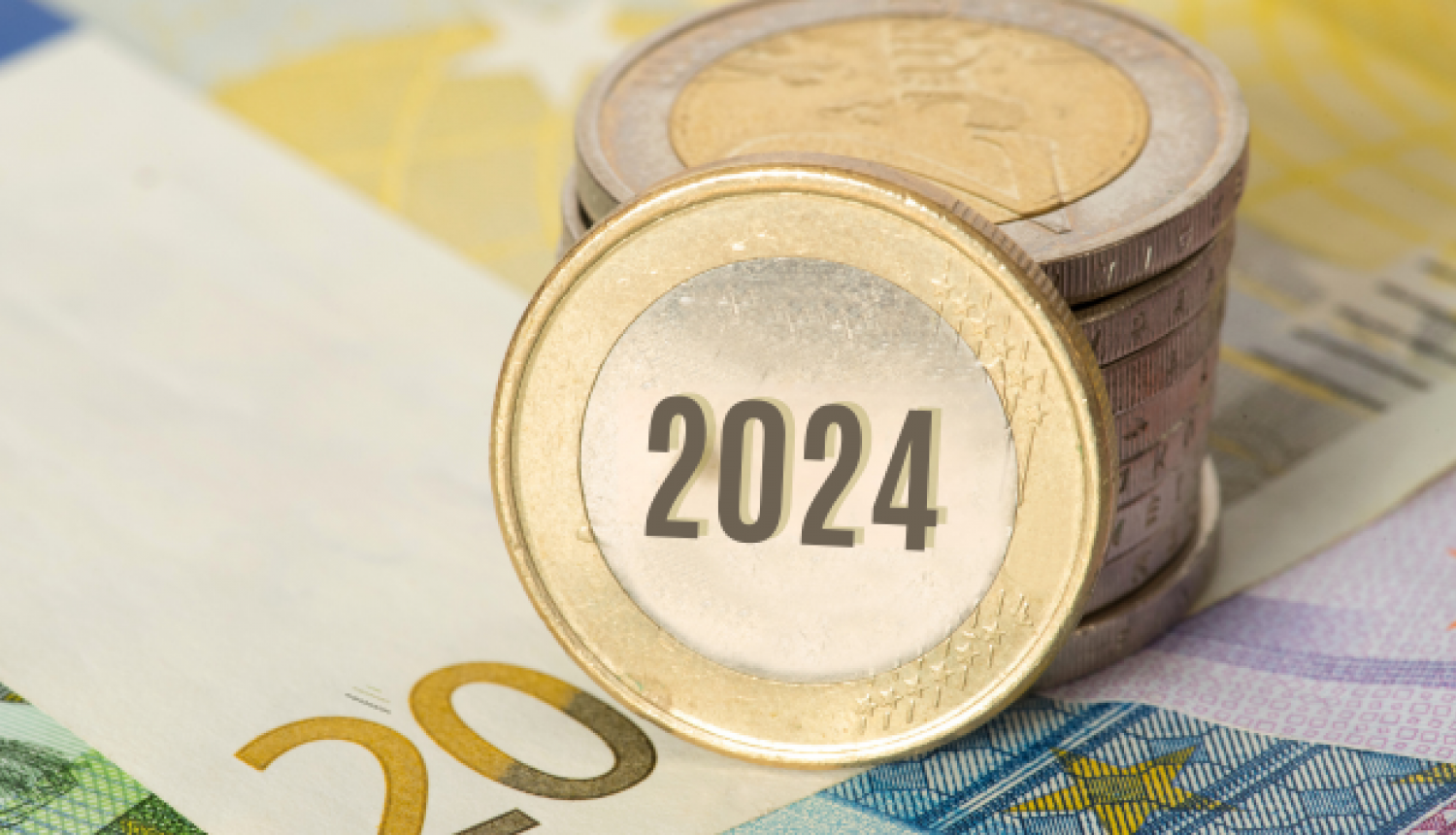State social benefits
As of 1 January 2024, the following benefit rates will increase:
- the added allowance to the state family benefit for a child with a disability: from 106.72 to 160 euros;
- the state benefit for children with coeliac disease: from 106.72 to 160 euros;
- the care benefit for people with disabilities who are over 18 years of age and whose disability is due to a childhood illness: from 313.43 to 413.43 euros.
In January and February 2024, SSIA will still grant and pay the amounts at the level set before 31 December 2023. The difference for January and February will be paid by 31 March, and from there on, these payments will be made at the increased rate.
Pensions and remunerations
The minimum amounts for pensions and remunerations, and the state social security benefits are to increase on 1 January 2024. The new rates and the procedure for how they are paid are explained here.
Old-age pension
In 2024, the retirement age will be 64 years and nine months, and 62 years and nine months for early retirement.
Added allowance for old-age and disability pensions for pensionable service before 31 December 1995
From 1 January 2024, Latvian old-age and disability pensions granted between 1 January 2012 and 31 December 2014 will be allocated an added allowance for the pensionable service accrued before 31 December 1995, and will be taken into account in the calculation of the pension. The amount of the added allowance will be 1.52 euros per year of service.
2nd pension pillar
Starting from 1 July 2024 , SSIA will provide 2nd pension pillar fund managers with information about the members whose assets they manage, so that the fund managers can provide personalised advice to fund members in relation to whether they have chosen the best investment plan for their age and needs.
Personal income tax for micro-enterprise taxpayers
Starting from 1 January 2024, if a self-employed micro-enterprise taxpayer, who
- is also an employee, submits their a payroll tax booklet via the electronic declaration system (EDS) of the State Revenue Service (SRS) at their place of work, then when it grants sickness benefit, SIAA will charge personal income tax over the sickness benefit applying the SRS tax-exempt minimum amount and tax breaks for dependants or additional tax breaks for persons with disabilities and politically repressed persons.
- receives a pension, submits the payroll tax booklet via SRS EDS, then in paying the pension SIAA will apply tax breaks.
Mandatory state social insurance contributions
Because the minimum monthly wage is set at 700 euros on 1 January 2024:
- self-employed individuals, if their monthly income
- is less than 700 euros, must pay the mandatory state social insurance contributions (MSSIC) in the amount of 10% for pension insurance;
- is equal to or is more than 700 euros, must pay MSSIC for the minimum 700 euro amount at a rate of 31.07% for all types of insurance, and 10% of the difference between the actual income and the amount subject to MSSIC for pension insurance.
- for persons who voluntarily participate in state social insurance and pay MSSIC voluntarily, the minimum amount subject to MSSIC per calendar year is 8400 euros. This means that MSSIC must be paid from at least this amount every year.
Minimum contributions
- SSIA will calculate the minimum mandatory state social insurance contributions (‘minimum contributions’) for those employees and self-employed individuals whose quarterly income reported to the State Revenue Service will be less than 2100 euros (three minimum monthly wage amounts).
- SSIA conducts the recalculation of the minimum contribution for the year, taking into account the minimum mandatory contribution amount that year, within seven months after the end of that calendar year. So far, this period has been three months.
This means that SSIA will recalculate the minimum contributions for 2023 based the minimum mandatory contribution amount for that year by 31 July 2024.
- When recalculating the minimum contributions for the year, SSIA will also recalculate the minimum contributions for the previous three years. The minimum contributions will be recalculated if the employer updates (increases) the employee’s income and their mandatory contributions after the recalculation of the minimum mandatory contributions takes place.
SSIA will carry out this recalculation for the previous three years for the first time by 31 July 2024.
- Self-employed individuals will have to pay the minimum contributions for the previous year by 23 October of the following year (previously 23 June).
- SSIA will not calculate the minimum contributions if the total amount of the minimum contributions that SSIA is to charge the employer or the self-employed individual for the quarter or to recalculate for the tax year does not exceed 5 euros. This provision will apply to social insurance periods starting on 1 January 2024.
- The list of exemptions from minimum contributions has been expanded, eliminating minimum mandatory for detained persons who are employed while in remand prison, for persons with a disability who are under the age of 18, if their monthly wage is below the national minimum wage.
Contributions paid by persons receiving income from royalties
The special royalty taxation scheme will remain in place between 1 January 2024 and 31 December 2024. This means that in 2024, people earning income from royalties will also have the right not to register as performers of economic activity, and the current procedure pertaining to the amounts subject to MSSIC and the minimum mandatory state social insurance contributions will remain the same.



